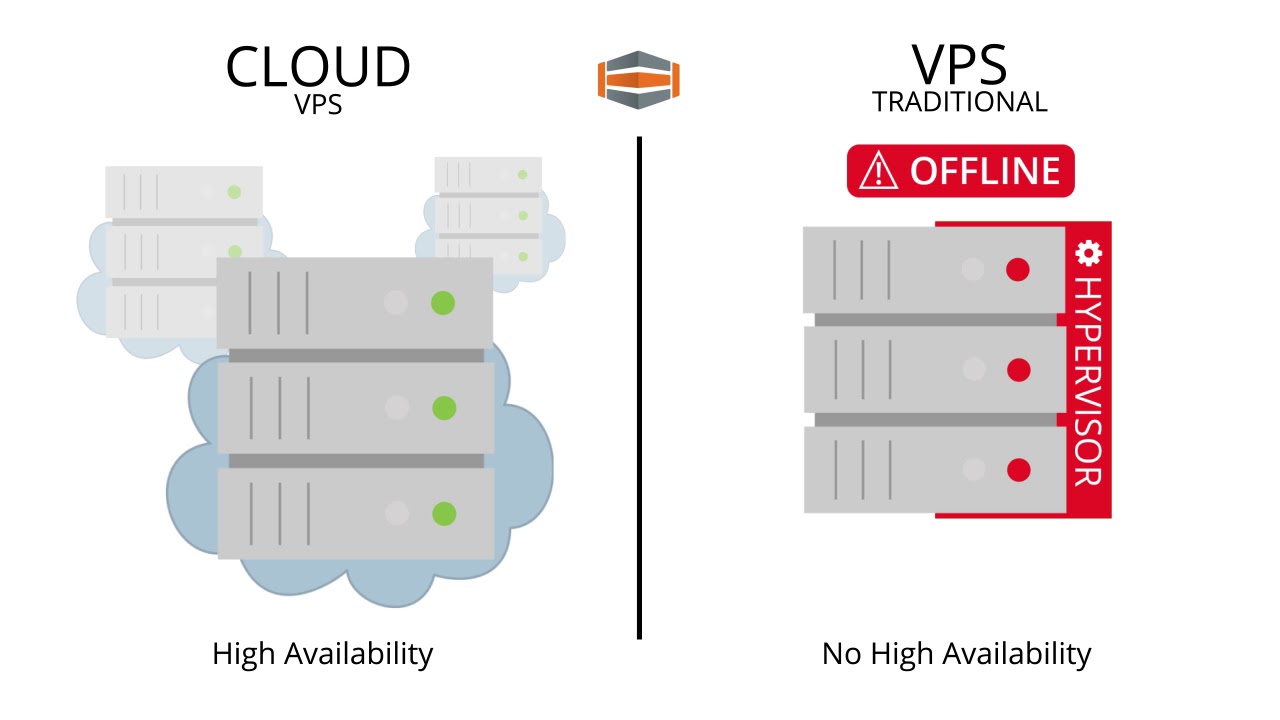Cloud Hosting vs VPS: Understanding the Key Differences
When it comes to hosting your website or online application, there are a few key options to consider. Two popular choices are cloud hosting and VPS hosting. While both offer unique benefits, it’s important to understand the differences between the two in order to make an informed decision for your specific needs. In this article, we’ll explore the distinctions between cloud hosting and VPS hosting, as well as the advantages and drawbacks of each option.
Cloud Hosting Overview
Cloud hosting is a type of hosting that relies on a network of virtual servers to provide resources and infrastructure for your website or application. This network is often made up of multiple physical servers located in various data centers around the world. With cloud hosting, your website or application is hosted on a virtual server that draws resources from this network as needed.
- Scalability: One of the key advantages of cloud hosting is its scalability. With cloud hosting, you can easily scale up or down your resources as needed, making it ideal for websites or applications with fluctuating traffic levels.
- Reliability: Cloud hosting is known for its reliability, as your website or application is not dependent on a single physical server. If one server goes down, another can quickly take its place, ensuring minimal downtime.
- Flexibility: Cloud hosting offers a high level of flexibility, allowing you to customize your resources and configurations to meet your specific needs. This can be especially beneficial for growing businesses or applications with unique requirements.
VPS Hosting Overview
VPS (Virtual Private Server) hosting is a type of hosting that involves partitioning a physical server into multiple virtual servers. Each virtual server operates independently, with its own dedicated resources and operating system. VPS hosting gives you more control and customization options compared to shared hosting, without the high price tag of a dedicated server.
- Performance: VPS hosting typically offers better performance compared to shared hosting, as your website or application has dedicated resources that are not shared with other users.
- Control: With VPS hosting, you have more control over your server environment, including the ability to install custom software and make configuration changes to meet your specific requirements.
- Security: VPS hosting is generally more secure than shared hosting, as each virtual server is isolated from others, reducing the risk of security breaches or data leaks.
Cloud Hosting vs VPS: Key Differences
While cloud hosting and VPS hosting share some similarities, there are key differences that differentiate the two options. One of the main distinctions is the underlying infrastructure: cloud hosting relies on a network of virtual servers, while VPS hosting involves partitioning a physical server into multiple virtual servers.
- Scalability: Cloud hosting is known for its scalability, allowing you to easily adjust your resources based on your needs. VPS hosting, on the other hand, has more limited scalability, as your resources are confined to the physical server that houses your virtual server.
- Reliability: Cloud hosting is typically more reliable than VPS hosting, as your website or application is not tied to a single physical server. In contrast, VPS hosting can be more vulnerable to downtime if the physical server experiences issues.
- Cost: VPS hosting is generally more cost-effective than cloud hosting, making it a popular choice for businesses or individuals on a budget. Cloud hosting, while more scalable and flexible, can be more expensive due to the resources and infrastructure required to support it.
Which Option is Right for You?
Choosing between cloud hosting and VPS hosting ultimately comes down to your specific needs and budget. If you’re looking for scalability, flexibility, and reliability, cloud hosting may be the right choice for you. On the other hand, if you prioritize control, performance, and cost-effectiveness, VPS hosting could be a better fit.
Before making a decision, consider factors such as your expected traffic levels, budget, technical expertise, and growth projections. It may also be helpful to consult with a hosting provider to determine which option aligns best with your needs and goals.
Regardless of which option you choose, both cloud hosting and VPS hosting can offer reliable and secure hosting solutions for your website or application. By understanding the differences between the two, you can make an informed choice that meets your unique requirements and helps you achieve your online goals.
